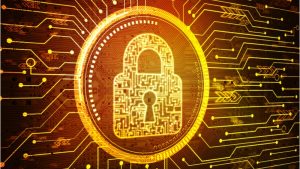According to a new survey, the majority of K-12 teachers are paying out of their own pockets for ed tech for their classrooms and students.
San Diego State University (SDSU) has launched the Virtual Immersive Teaching and Learning (VITaL) Research Center, which is dedicated to expanding the use of emergent virtual technologies in the classroom.
The Federal Communications Commission (FCC) announced a new partnership with the Institute of Museum and Library Services (IMLS) to expand broadband connectivity to Tribal libraries.
The Senate Homeland Security and Governmental Affairs Committee on Feb. 2 voted to approve the Improving Cybersecurity of Small Organizations Act of 2021 (S. 2483), which would require the Cybersecurity and Infrastructure Security Agency (CISA) to maintain and promote cyber guidance for use by small organizations.
The Department of Labor (DoL) has announced up to $15 million in grants to states and territories to ensure that Americans eligible for unemployment insurance (UI) can apply and receive their benefits.
Discovery Education, an ed-tech company, has launched a new iPad app intended to put augmented reality (AR) technology at the fingertips of learners and educators.
The Federal Communications Commission (FCC) has adopted an order updating the rules for its E-Rate program to clarify that Tribal libraries can access program funding.
As part of the bipartisan infrastructure bill signed into law last year, Commerce Secretary Gina Raimondo is tasked with overseeing the Federal government’s $65 billion investment in broadband deployment to unserved and underserved areas across the country.
Officials with the National Association of State Chief Information Officers (NASCIO) and CompTIA Public Technology Institute hosted their 11th annual State and Local 2022 Tech Forecast on Jan. 27 with a focus on hot-button digital government service issues including user centric design, improved customer experience, security, automation, and citizen identity management.
The Federal Communications Commission (FCC) announced today the agency is ready to authorize more than $1.2 billion through the Rural Digital Opportunity Fund to finance new broadband deployments in 32 states. The commission also announced creation of the Rural Broadband Accountability Plan, which is a new effort from to monitor and ensure compliance for universal service high-cost programs including the Rural Digital Opportunity Fund.












